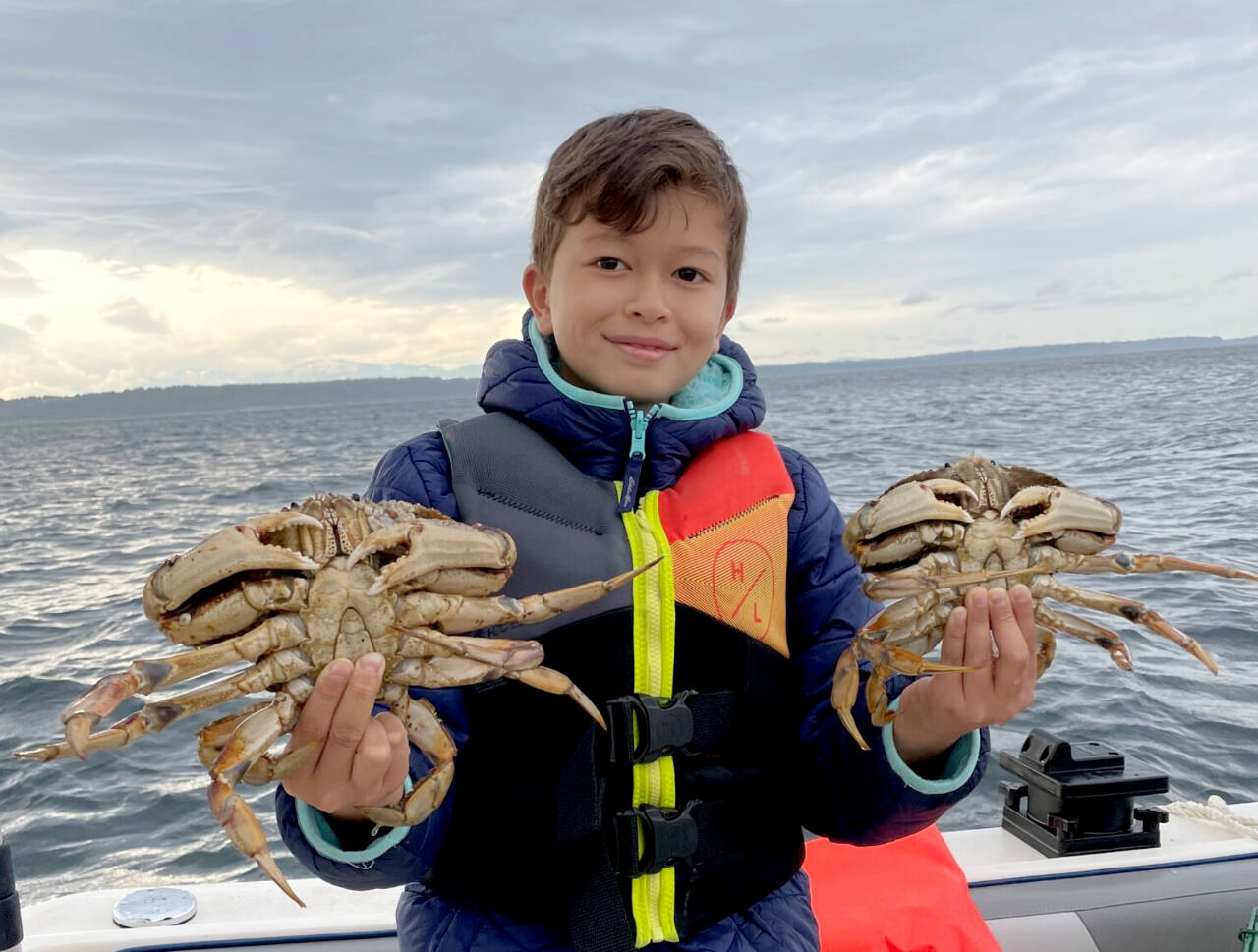OLYMPIA — The Washington Department of Fish and Wildlife announced Thursday that summer crab-fishing seasons will begin July 1 in the Strait of Juan de Fuca and Admiralty Inlet.
“The summer seasons being announced today are very similar to what was announced for summer 2022,” said Don Velasquez, WDFW crustacean biologist. “Some areas with continued low abundance of Dungeness crab will see limited seasons or remain closed this year to continue to promote Dungeness population recovery.”
Crabbing will be closed on the July 4 holiday (summer seasons typically are closed on Tuesdays and Wednesdays).
Extreme low tides during opening week will also pose a challenge for people launching boats at some sites. Recreational crabbers should target the portion of the day with the least tide exchange and make sure their crab pots are properly weighted down during these extreme low tides to avoid traps moving and becoming lost. Crabbers can find helpful information on how to properly weight crab pots by going to the Northwest Straits Commission webpage at www.nwstraits.org/
Crabbers are also reminded to avoid deploying crab pots and gear in ferry lanes. Crab pots and gear in ferry lanes have caused serious damage to ferry boats in the past.
Marine Area 4 (Neah Bay east of the Bonilla-Tatoosh line), Marine Area 5 (Sekiu), Marine Area 6 (East Juan de Fuca Strait from Low Point to Point Wilson, Port Townsend) and Marine Area 9 (Port Gamble and Admiralty Inlet) are open July 1 through Sept. 4, Thursdays through Mondays only.
In addition, Marine Area 12 (Hood Canal) north of a line projected true east from Ayock Point (just south of Hamma Hamma) is open July 1 through Sept. 4, Thursdays through Mondays only.
Marine Area 12 (Hood Canal) south of a line projected true east from Ayock Point remains closed until further notice due to a weak Dungeness crab population.
The daily limit throughout Puget Sound is five Dungeness crab, males only, in hard-shell condition with a minimum carapace width of 6¼ inches. Crabbers may also keep six red rock crab of either sex per day in open areas, provided the crab are in hard-shell condition and measure at least 5 inches carapace width.
Crabbers may not set or pull shellfish gear from a vessel from one hour after official sunset to one hour before official sunrise. Each unattended trap must have its own buoy line and a separate buoy that is permanently and legibly marked with the first name, last name, and permanent address of the licensed harvester. All traps must be removed from the water on days when the fishery is closed.
Puget Sound crabbers are required to record their harvest of Dungeness crab on their catch record cards immediately after retaining the crab and before re-deploying the trap. Separate catch record cards are issued for the summer and winter seasons.
Catch record card information must be submitted or reported online to WDFW by Oct. 1.
“It is important that crabbers return their catch record cards at the end of the season in order to help us better understand and manage this fishery,” said Velasquez. “Last summer only 42 percent of crabbers reported their catch by the deadline, and this information is critical for setting future seasons. We need those catch record cards returned or reported online — whether you caught any crab or not — to determine levels of sustainable catch and set harvest seasons,” said Velasquez.
Hunting feedback
OLYMPIA — Members of the public are invited to weigh in on longer-term hunting season planning as the WDFW begins its latest three-year season setting effort. Comments received during an ongoing scoping period will be used to inform game managers about changes the public would like to see to hunting seasons in 2024–2026.
The current scoping period began Thursday and ends July 2. Comments may be submitted online through WDFW’s public scoping survey at https://publicinput.com/i4611, via email at 77552@PublicInput.com, or via voicemail by calling 855-925-2801 and entering code 2576. Written comments may also be mailed to Washington Department of Fish and Wildlife – Wildlife Program, PO Box 43200, Olympia, WA 98504.
Three-year season setting is an in-depth rulemaking process that allows WDFW to propose and collect public feedback on changes to Washington hunting laws. In between three-year rule making cycles, annual season setting allows the Department to propose minor season changes or changes due to emerging needs.
The Washington Fish and Wildlife Commission sets hunting seasons based on public input and staff recommendations.
“We encourage everyone interested in upcoming hunting seasons to send us feedback to help inform the rule making process,” said Anis Aoude, WDFW game division manager. “This process helps us better understand the experiences Washington hunters want, and we need your feedback to help us determine the path forward.”
Further opportunities for public involvement, including public meetings and a public comment period on proposed rule changes, will take place later this year.

